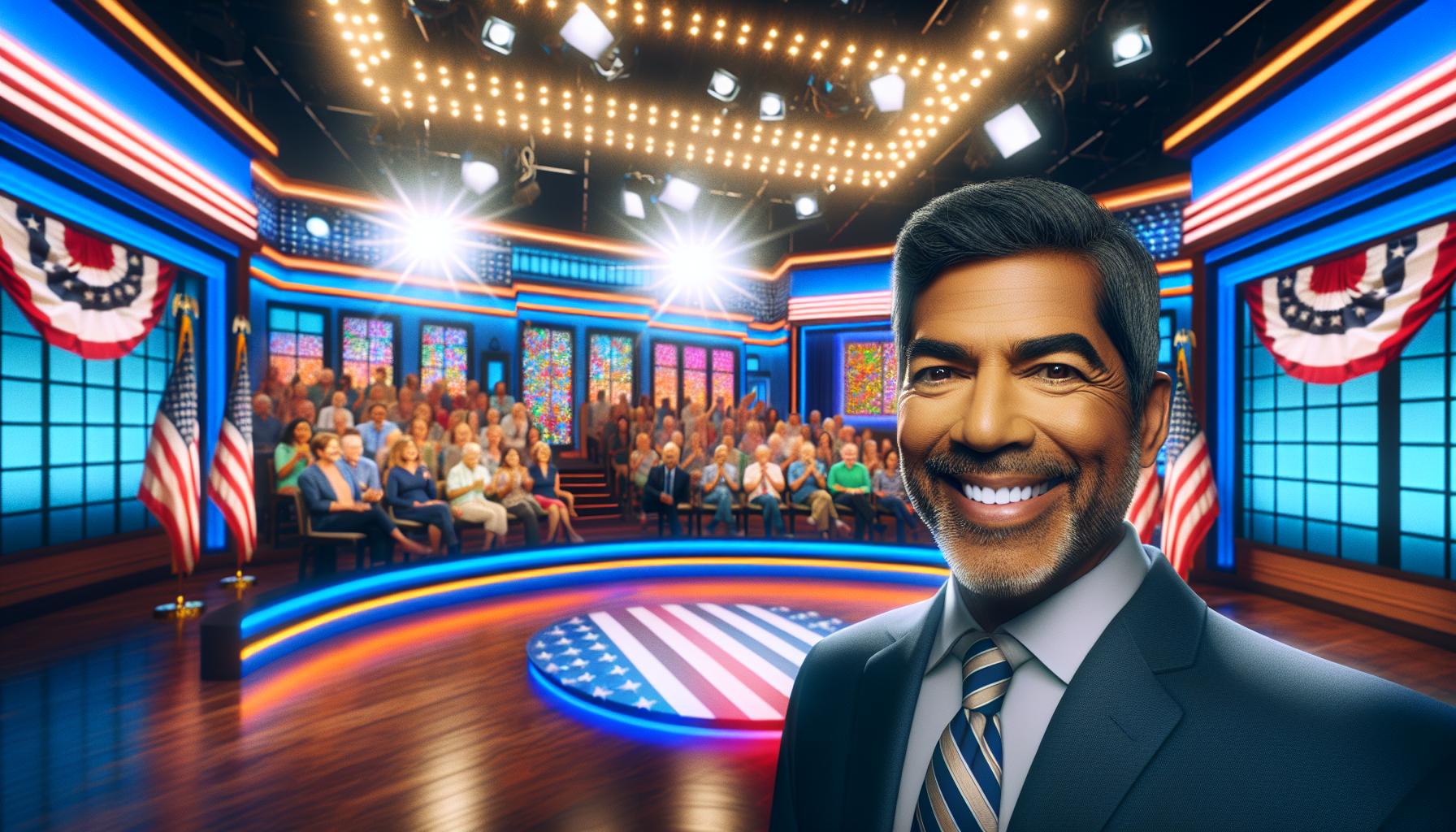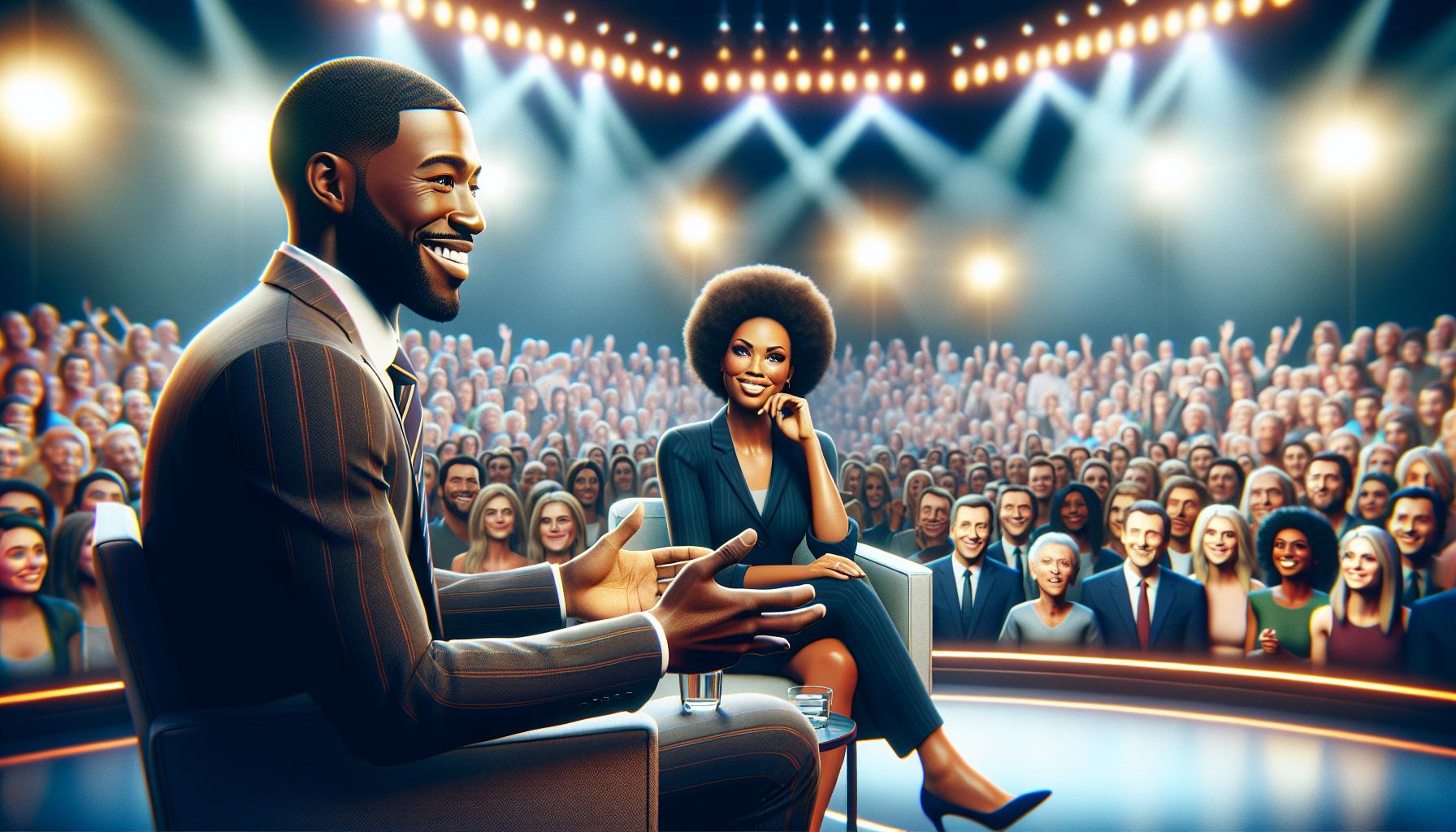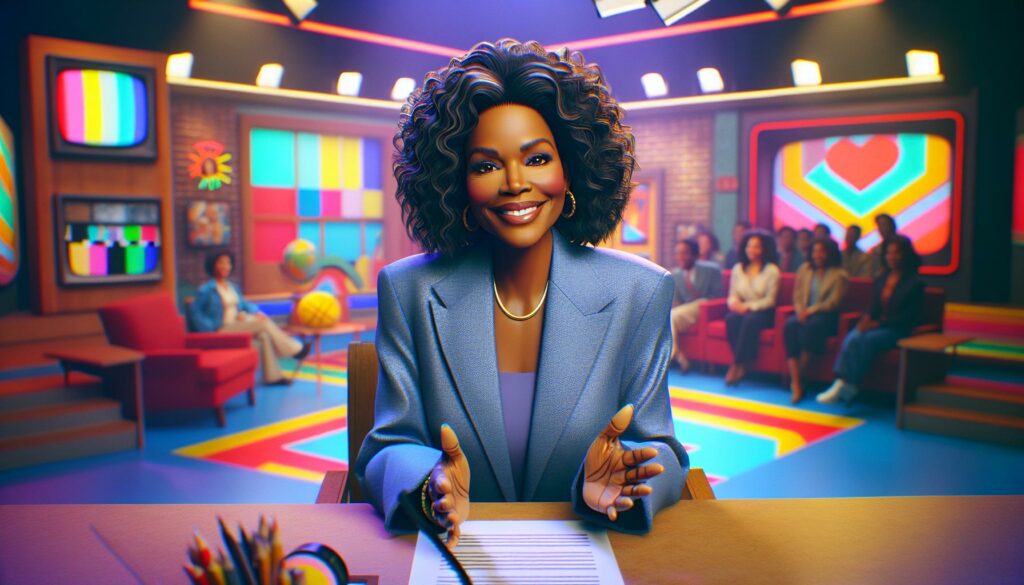Talk show hosts are the charismatic ringmasters of the entertainment circus, juggling humor, current events, and celebrity interviews like pros. With a blend of wit and charm, they invite viewers into their world, transforming mundane topics into must-see television. Ever wondered how they manage to keep the audience laughing while tackling serious issues? It’s a delicate dance that requires skill and a sprinkle of spontaneity.
From the legendary Johnny Carson to the modern-day titans like Jimmy Fallon and Ellen DeGeneres, these hosts have a knack for turning everyday conversations into unforgettable moments. They not only entertain but also shape pop culture, often becoming the voice of a generation. So grab your popcorn and settle in as we dive into the fascinating world of talk show hosts, where every episode is a new adventure waiting to unfold.
Talk Shows Hosts
 Talk show hosts serve as the heart of the program, guiding discussions and interacting with guests. They possess a unique ability to engage audiences, often using humor to create a relaxed atmosphere. Charismatic personalities attract viewers, and skilled hosts like Jimmy Fallon and Ellen DeGeneres use this talent to build rapport with guests and fans alike.
Talk show hosts serve as the heart of the program, guiding discussions and interacting with guests. They possess a unique ability to engage audiences, often using humor to create a relaxed atmosphere. Charismatic personalities attract viewers, and skilled hosts like Jimmy Fallon and Ellen DeGeneres use this talent to build rapport with guests and fans alike.
Influential figures in talk shows often shape pop culture. For instance, hosts like Stephen Colbert provide commentary on current events, providing their perspective on social issues. These hosts not only entertain but also inform, blending humor with insight.
Famous talk show hosts often develop a signature style that distinguishes them from others. From the monologues of Jimmy Kimmel to the heartfelt interviews by Oprah Winfrey, each host brings a distinctive flavor. Audience preferences impact which hosts gain popularity, showing how essential viewer dynamics are to their success.
The production of talk shows involves a coordinated effort. Writers craft clever scripts while producers curate the guest list. This collaboration ensures that each episode resonates with viewers, creating memorable content that keeps audiences returning.
Hosts often face challenges, needing to stay relevant in an ever-changing media landscape. Social media plays a crucial role in this, offering avenues for increased engagement. Adaptability allows hosts to connect with younger audiences, expanding their reach beyond traditional television.
Adapting to audience feedback remains vital for hosts. They often incorporate viewer suggestions and current trends into their programming. This responsiveness fosters a sense of community, encouraging loyal viewership.
Popular Talk Shows Hosts Today

Talk show hosts captivate audiences with their charm and wit, shaping conversations in unique ways. They blend entertainment with insight and become beloved figures across the media landscape.
Charismatic Personalities
 Charismatic personalities drive the success of many popular talk show hosts today. Conan O’Brien captivates viewers with his quick wit and playful banter. James Corden’s infectious energy engages audiences through comedic sketches and musical segments. Trevor Noah combines humor with social commentary, gaining respect for his insightful discussions. These hosts create strong connections with their audiences, allowing for an engaging viewing experience. Their ability to relate to viewers helps foster a loyal fan base.
Charismatic personalities drive the success of many popular talk show hosts today. Conan O’Brien captivates viewers with his quick wit and playful banter. James Corden’s infectious energy engages audiences through comedic sketches and musical segments. Trevor Noah combines humor with social commentary, gaining respect for his insightful discussions. These hosts create strong connections with their audiences, allowing for an engaging viewing experience. Their ability to relate to viewers helps foster a loyal fan base.
Unique Interview Styles
Unique interview styles define what separates each talk show host from one another. Jimmy Kimmel’s relaxed approach encourages candid conversations with guests, often leading to unexpected highlights. Ellen DeGeneres utilizes empathy and warmth to create a welcoming atmosphere, allowing guests to share personal stories. The direct questioning technique of Stephen Colbert invites thought-provoking discussions, often touching on political issues. Hosts frequently adapt their styles based on guest dynamics, enhancing the overall experience for viewers. These varied approaches contribute to the rich tapestry of talk show entertainment today.
Impact Of Talk Shows On Culture

Talk shows play a significant role in shaping cultural narratives. Their influence extends beyond entertainment, impacting public opinion and societal values.
Entertainment Influence
Hosts like Johnny Carson and Jimmy Fallon elevate entertainment by creating memorable moments. Their unique styles draw in viewers, making each episode captivating. Engaging celebrity interviews often dominate discussions, sparking trends and conversations. The fusion of humor and current events enhances relatability, connecting audiences with real-world experiences. Fan engagement through social media amplifies this effect, as viewers share highlights and favorite moments, fostering a sense of community. Ratings and audience feedback directly impact show formats, ensuring hosts remain attuned to viewer interests.
Social Issues Addressed
Talk show hosts frequently address pressing social issues, effectively bridging entertainment with awareness. Stephen Colbert, for instance, uses satire to comment on politics, encouraging critical thinking among viewers. Cultural conversations emerge through discussions on LGBTQ+ rights, mental health, and racial equality. Hosts provide platforms for marginalized voices, highlighting their stories and challenges. By presenting diverse perspectives, they promote empathy and understanding. Audience reactions to these discussions influence future content, reflecting a dynamic interplay between entertainment and societal change.
The Evolution Of Talk Shows

Talk shows have undergone significant transformations over the decades. The genre stems from early radio programs and evolved into television formats that highlight dynamic conversations and celebrity interactions.
Historical Context
In the 1950s, talk shows gained traction as a staple of American television. Programs like “The Tonight Show” with Steve Allen introduced the concept of engaging interviews mixed with comedy. Hosts like Johnny Carson further refined the format, incorporating sketches and musical performances. Such shows quickly became cultural phenomena that shaped public discourse. The 1980s and 1990s saw a diversification of styles, with personalities like Oprah Winfrey pioneering heartfelt discussions and themed segments. The conversational format’s flexibility allowed for varying topics, making it appealing to a broad audience and setting the stage for future iterations.
Modern Trends
 Today, talk shows continue to innovate, adapting to contemporary viewer preferences and societal changes. Hosts like Jimmy Fallon and Stephen Colbert emphasize humor while addressing timely issues. The integration of social media has redefined audience engagement, allowing fans to interact directly with hosts in real-time. Furthermore, niche talk shows have emerged, offering specialized content catering to specific interests. Hosts increasingly use satire and personal anecdotes, fostering deeper connections with audiences. Current trends emphasize authenticity, encouraging hosts to address important social issues that resonate with viewers on a personal level.
Today, talk shows continue to innovate, adapting to contemporary viewer preferences and societal changes. Hosts like Jimmy Fallon and Stephen Colbert emphasize humor while addressing timely issues. The integration of social media has redefined audience engagement, allowing fans to interact directly with hosts in real-time. Furthermore, niche talk shows have emerged, offering specialized content catering to specific interests. Hosts increasingly use satire and personal anecdotes, fostering deeper connections with audiences. Current trends emphasize authenticity, encouraging hosts to address important social issues that resonate with viewers on a personal level.
Talk show hosts play a pivotal role in shaping entertainment and cultural dialogue. Their unique styles and engaging personalities not only entertain but also provoke thought and inspire change. By addressing pressing social issues and fostering community through humor and relatability, these hosts connect deeply with their audiences.
As the media landscape evolves, they continue to adapt and innovate, ensuring their relevance in a fast-paced world. The impact of talk shows is undeniable, as they remain a vital platform for conversation and connection in today’s society.



